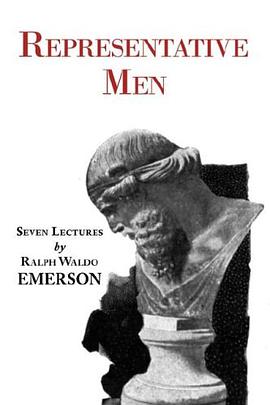

具体描述
From Publishers Weekly
Starred Review. What makes Philbrick's book so fascinating and accessible—the way he turns the Pilgrim legend on its head and shakes out fresh insights from the crusty old mythology we all absorbed in grade school—is present in full force in this exceptional audio version. With more than 800 audiobooks to his credit, Guidall gives the term "veteran reader" a whole new meaning. Such leading figures as William Bradford, Benjamin Church and Miles Standish of the so-called Plymouth Colony (which was not even close to Plymouth or its now-famous rock) emerge from the pages of history as understandable if not always admirable figures, and Guidall's evocations of the sadly depleted (by European diseases) Wampanoag Indians and their chief, Massasoit, are equally believable. The bitter voyage of the Seaflower (a slave ship taking captive Wampanoags to be sold in the Caribbean after a disastrous war with Massasoit's son, Philip), which rounds out Philbrick's masterful account, is treated with energy, respect and a straightforwardness that only increases its power.
Copyright © Reed Business Information, a division of Reed Elsevier Inc. All rights reserved.
From The Washington Post
Few periods in American history are as clouded in mythology and romantic fantasy as the Pilgrim settlement of New England. The Mayflower, Plymouth Rock, the first Thanksgiving, Miles Standish, John Alden and Priscilla ("Speak for yourself, John") Mullins -- this is the stuff of legend, and we have thrilled to it for generations. Among many other things, it is what Nathaniel Philbrick calls "a restorative myth of national origins," one that encourages us in the conviction that we are a nation uniquely blessed by God and that we have reached a level of righteousness unattained by any other country.
It is a comforting mythology, but it has little basis in fact. The voyage of the Mayflower was a painful and fatal (one crew member died) transatlantic passage by people who knew nothing about the sea and had "almost no relevant experience when it came to carving a settlement out of the American wilderness." Wherever they first set foot on the American continent, it wasn't Plymouth, and it certainly wasn't Plymouth Rock. The first Thanksgiving (in 1621) was indeed attended by Indians as well as Pilgrims, but they didn't sit at the tidy table depicted in Victorian popular art; they "stood, squatted, or sat on the ground as they clustered around outdoor fires, where the deer and birds turned on wooden spits and where pottages -- stews into which varieties of meats and vegetables were thrown -- simmered invitingly." As for Priscilla Mullins, John Alden and Miles Standish, that tale is nothing more than a product of the imagination of Henry Wadsworth Longfellow.
These cherished myths, in other words, bear approximately as much resemblance to reality as does, say, the story of George Washington and the cherry tree. In Mayflower, his study of the Pilgrim settlement, Philbrick dispatches them in a few paragraphs. It takes considerably longer, and requires vastly more detail, for him to get closer to the truth about relations between the Pilgrims and the Indians. Popular mythology tends to focus on Massasoit, the chief of the Pokanokets who allied his tribe with the English settlers, and Squanto, the English-speaking Indian who formed a close, mutually rewarding friendship with William Bradford, governor of Plymouth Plantation for three decades. Some of what that mythology tells us is indeed true, but as Philbrick is at pains to demonstrate, the full truth is vastly more complicated.
Philbrick, who lives on Nantucket Island and has written often about the sea and those who sail it -- he won the National Book Award for nonfiction in 2000 for In the Heart of the Sea: The Tragedy of the Whaleship Essex -- specializes in popular history, a genre often sneered at by academic historians but treasured by readers, who welcome its emphasis on narrative and lucid prose. He is not as graceful a stylist as the genre's most celebrated living practitioner, David McCullough, but his work is entirely accessible and gives every evidence of being sound scholarship. He appears to bring no bias to his work except a desire to get as close to the truth as primary and secondary sources allow, in refreshing contrast to the many academic historians who -- consciously or not -- have permitted political and cultural bias to color their interpretations of the past.
Because Philbrick is in search of the more factually complex and morally ambiguous truth behind essentially self-serving popular mythology, it is important to emphasize that he is not out to denigrate that mythology or those who embrace it. He celebrates the courage, resourcefulness and determination of many of the settlers, most notably Bradford and the remarkable warrior Benjamin Church; he acknowledges and describes in detail the many ways in which Pilgrims and Indians cooperated, in some cases to their mutual advantage; he pays particular tribute to Mary Rowlandson, the settler who was kidnapped by Indians and endured much hardship and privation but ultimately helped broker peace between Indians and Puritans.
He knows, though, that the story of the Pilgrims can't be reduced to doughty Englishmen and women in modest homespun and smiling Indians proffering peace pipes. Like the settlement of the West, the settlement of New England was hard, bloody and violent. If Indians made horrendous attacks on settlers -- many of those whom they killed were women and children -- the Pilgrims more than responded in kind. Many of the Pilgrims were pious folk, Puritans who crossed the ocean in hopes of worshiping as they wished -- they "believed it was necessary to venture back to the absolute beginning of Christianity, before the church had been corrupted by centuries of laxity and abuse, to locate divine truth" -- but like the settlers of Israel three centuries later, they were ready to fight when necessary, and they fought with zeal.
Encouraged by Longfellow and other mythologizers, we have tended to think of the Pilgrims as earnest, uncomplicated and rather innocent, motivated solely by religious faith and goodhearted in their dealings with New England's native population. There is a measure of truth to this, in that some settlers wanted to treat the Indians fairly and tried hard to live peacefully beside them, but they were also fiercely determined to gain a foothold in this new land and did not hesitate to act violently in order to gain one. The famous Mayflower Compact that they wrote and signed during the Atlantic crossing did contain a few of the seeds from which the United States and its democratic system eventually sprang, but the settlers were not especially democratic themselves. They disliked and suppressed dissent, enslaved Indians and shipped them off to brutal conditions in the West Indies and clung with such stubborn rigidity to their belief that they alone understood God's will that they were incapable of comprehending the Indians' very different culture.
The early years of Plymouth Plantation were exceedingly difficult but comparatively peaceful so far as relations with the many Indian tribes were concerned. Gradually, though, as English settlers moved ever deeper into New England and as Indians grasped the full extent of the threat to their established way of life, the settlers grew more belligerent, and the Indians grew more hostile. Indian raids on isolated settlements became more frequent and more brutal. The burning of Springfield in 1675, in what is now known as Massachusetts (after a tribe that was especially unfriendly to the Puritans), seems to have been the turning point. One prominent settler said it proved that all Indians were "the children of the devil, full of all subtlety and malice," a sentiment that many others came to share.
The ultimate result was an oddly forgotten chapter in American history: King Philip's War. Taking its name after the son of Massasoit who became chief of the Pokanokets, this dreadful little war started not long after the raid on Springfield and lasted for about two years, with gruesome consequences for everyone involved. Plymouth Colony lost eight percent of its male population -- by comparison, "during the forty-five months of World War II, the United States lost just under 1 percent of its adult male population" -- but these losses "appear almost inconsequential when compared to those of the Indians." The total Indian population before the war was about 20,000; by war's end, "at least 2,000 had been killed in battle or died of their injuries; 3,000 had died of sickness and starvation, 1,000 had been shipped out of the country as slaves, while an estimated 2,000 eventually fled to either the Iroquois to the west or the Abenakis to the north. Overall, the Native American population of southern New England had sustained a loss of somewhere between 60 and 80 percent."
It was a costly and entirely unnecessary war, brought about by Philip's vanity, Puritan stubbornness and a pervasive atmosphere of mistrust and misunderstanding. After the war finally ended, it quickly vanished from the public consciousness except in the places where it was fought: "Thanksgiving and its reassuring image of Indian-English cooperation became the predominant myth of the Pilgrims. . . . In the American popular imagination, the nation's history began with the Pilgrims and then leapfrogged more than 150 years to Lexington and Concord and the Revolution."
All of which is very much in the American grain. We like our history sanitized and theme-parked and self-congratulatory, not bloody and angry and unflattering. But if Mayflower achieves the wide readership it deserves, perhaps a few Americans will be moved to reconsider all that.
Copyright 2006, The Washington Post. All Rights Reserved.
作者简介
目录信息
读后感
评分
评分
评分
评分
用户评价
相关图书
本站所有内容均为互联网搜索引擎提供的公开搜索信息,本站不存储任何数据与内容,任何内容与数据均与本站无关,如有需要请联系相关搜索引擎包括但不限于百度,google,bing,sogou 等
© 2026 book.quotespace.org All Rights Reserved. 小美书屋 版权所有




















